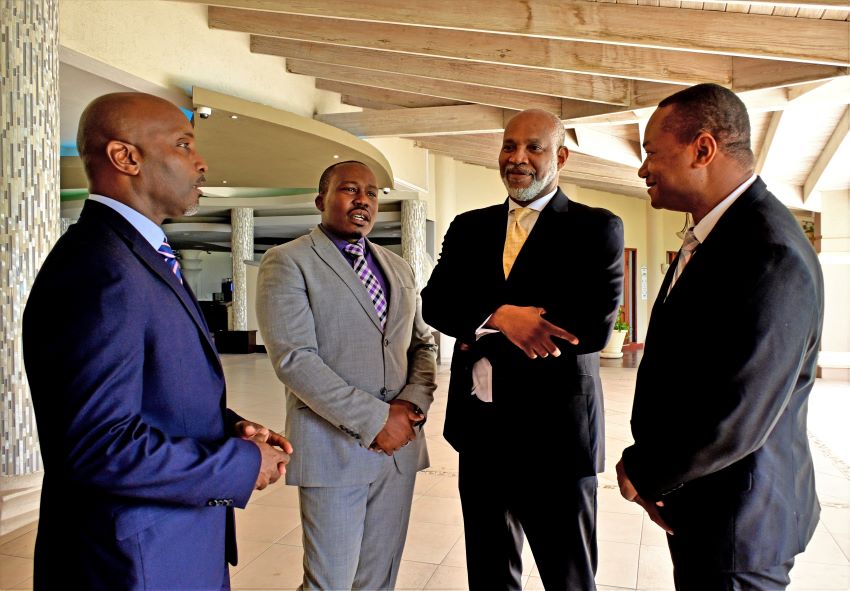
A cybercrime statute to replace the 2005 Computer Misuse Act is expected to go to Parliament within two months.
Attorney General Dale Marshall shared this news today, as he addressed the three-day workshop on Effective Legal Frameworks for Building the Digital Economy, at the Accra Beach Hotel, Rockley, Christ Church.
Mr. Marshall told the gathering: “In my view, we cannot look to develop the digital economy across the region in any serious way, without considering the issue of how we deal with the negative aspects, and, in that regard, I am referring to cybercrime.
“Barbados has enlisted its Law Reform Commission, chaired by Sir David Simmons, to produce for us a cybercrime statute which will replace our 2005 Computer Misuse Act…. That particular [draft] statute… it is now in the hands of my ministerial colleague, and I expect we will have it in Parliament within the next two months.”
The Attorney General explained that the new statute, when passed, would provide specifically for the combatting of cybercrime in all of its iterations – from illegal access to computer systems; to computer-related fraud; to child pornography and child grooming; to cyber bullying.
Noting that some people were of the view that the Caribbean had been lagging behind in the area of Fintech, he suggested that countries should not recoil and run from emerging systems because of the recent situation with FTX, which formerly operated a cryptocurrency exchange.
Mr. Marshall said he was pleased to see the level of interest by traditional and new players on the local market, offering innovative solutions that enabled the movement of money by way of mobile phones.
“Barbados will ensure that there is the requisite regulatory environment through its institutions such as the Financial Services Commission, the Central Bank and the Fair Trading Commission, in particular, to nurture this fast-growing financial services area,” he stated.
He pointed out that the pace of technological innovation would always outstrip policymakers’ ability to make and enact legislation to either fulfil policy mandates or address the societal challenges that technology would bring to the forefront.
“Areas such as cyber security, cybercrime, artificial intelligence, Fintech and others can really be seen as highly technical, requiring specialised knowledge of the terminology and the potential impact on our respective national economies and our societies….
“Legislation that will stand the test of time has to always be technological neutral, and should not be overly prescriptive. It should…provide a framework for managing and resolving conflicts, protecting rights and freedoms of individuals, promote the general welfare of society, and achieve public policy objectives,” the Attorney General surmised.
Government, he pointed out, had made a concerted effort to prioritise digital transformation with the creation of the Ministry of Industry, Innovation, Science and Technology. He added that this was supported by significant investments in the creation of digital platforms for public service delivery.
